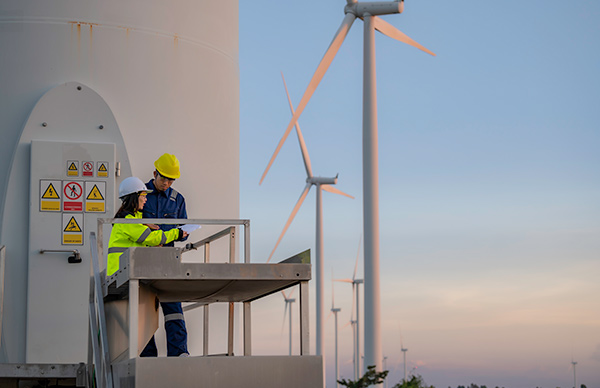Spanish Wind Energy Needs to Double Employment to Fulfill the PNIEC 2030
The Spanish wind sector faces a great challenge: to reach 50,000 MW of installed power by 2030, according to the National Integrated Energy and Climate Plan (PNIEC). To do so, it needs to double the number of jobs, which currently exceed 30,000, and have a stable and consensual regulatory framework that is not affected by political changes.
This has been stated by the experts who have participated in the WindTalent 2023 congress, which has brought together representatives from the main companies in the sector, as well as from training centers and universities.
Wind energy is a strategic industry for the Spanish economy, generating qualified employment and contributing to the energy transition and the fight against climate change. However, it also faces challenges such as technological innovation, digitization, integration of renewables into the electricity system, or competitiveness in international markets.
To overcome these challenges, the sector needs to have prepared and motivated professionals, who bring value to the change and adapt to the new demands of the market.
Additionally, the sector demands a stable and consensual regulatory framework that guarantees legal security and investor confidence. In this sense, the CEO of the AEE, Juan Virgilio Márquez, has warned that recent regional and general elections could affect the processing of wind projects that must comply with the deadlines set by the PNIEC.
“We have a challenge because we have elections that basically imply that we are going to be a few weeks or even in some cases, another month, with unconstituted management teams and we have cycles to comply with,” Márquez has indicated. “The next milestone in the administrative process, which is the construction authorization for all wind farms that obtained the environmental permit in January, is fulfilled on July 25,” he added.
Márquez has insisted that the wind sector needs “a linearity and continuity” that is not affected by political changes, and has asked administrations to “continue working so that the projects move forward.”
At Total HSE, we offer courses approved by GWO (Global Wind Organization), the organization that regulates safety training for the wind industry worldwide. With our courses, you can acquire the necessary skills to work on wind turbines, both in prevention, safety, and high-altitude work, as well as in blade repair and technical maintenance.
Don’t hesitate any longer and sign up for our courses. Enter our section of courses accredited by GWO and discover all the options we have for you.
